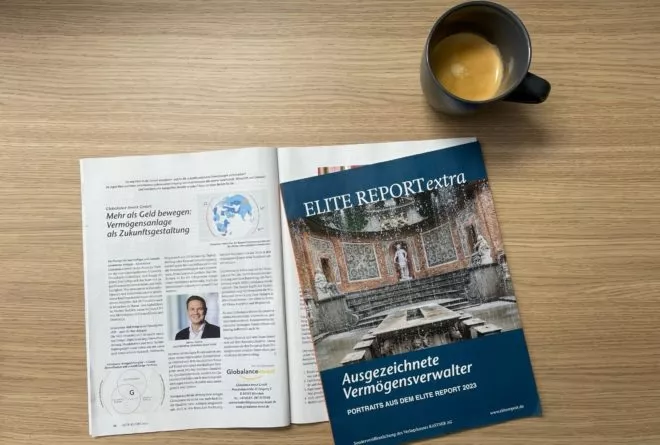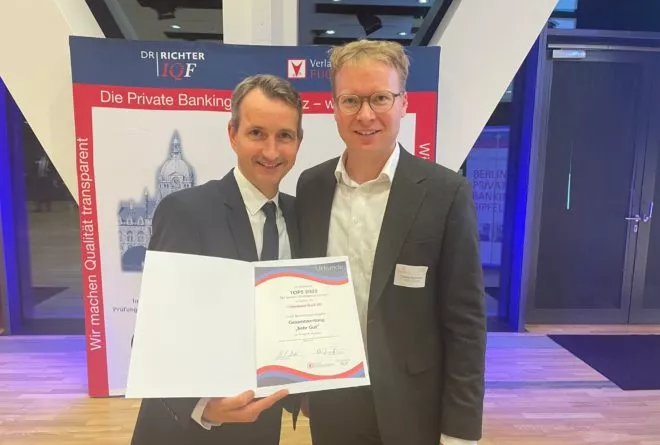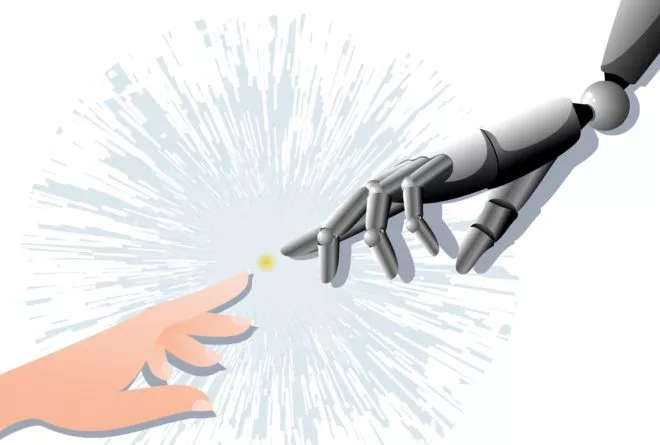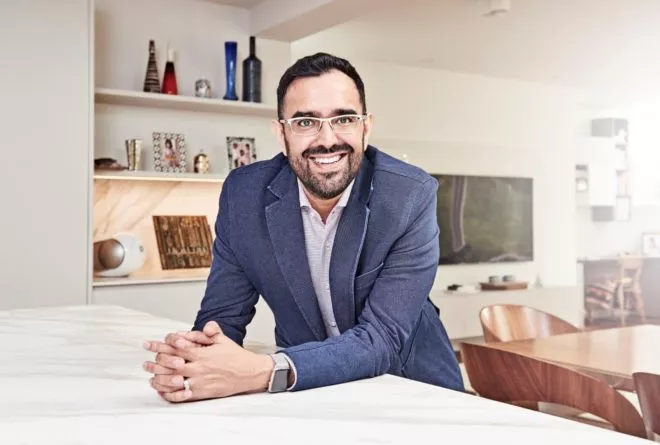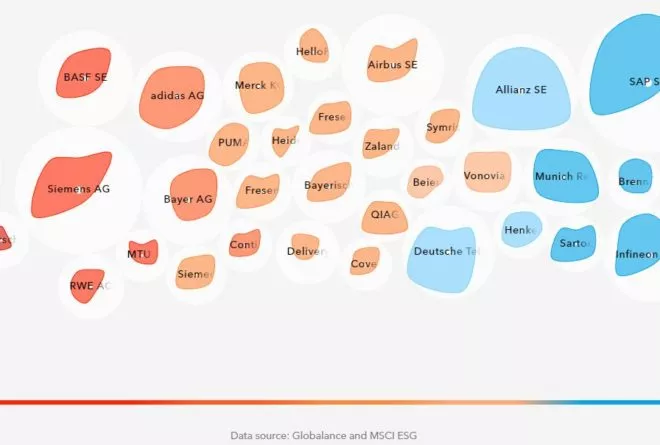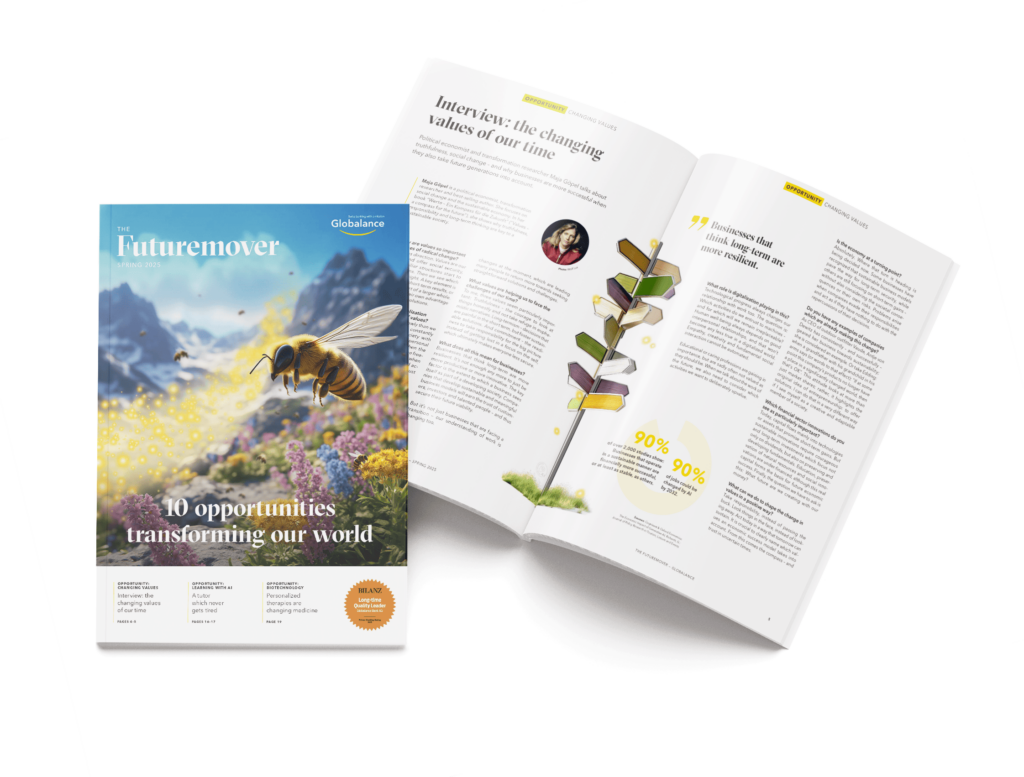News & Trends
Control over Data

How We Could Channel the Flood of Data
We can easily envisage five litres or estimate two kilograms. But with a data volume of 175 zettabytes, most of us will probably have to pass – a unit of measurement for the immeasurable. 175 with 21 zeros describes the estimated global data volume by the year 2025. If we were to store this amount on conventional DVDs, the stack of data media would reach from the Earth to the Moon – a whole 23 times. The notion of this amount of data is just as vague as the knowledge about its use. Where does our data end up? And why don’t we use it more wisely?
As we search Google for tickets to the theatre or check the latest holiday offers, it is not uncommon for warnings to pop up that require us to agree to or reject them. Usually we find these annoying and are quick to click the “Accept” button. And thus the tracking of our internet movements begins and cookies, small files that analyse our online behaviour, are diligently collected in the background.
The New Gold
Are we acting ignorantly or do we not care? After all, it is now common knowledge that even using the usual social media channels means entrusting our own data to tech companies. They, in turn, are making a new billion-dollar business out of it. Data is 21st century gold. But we can also benefit from this digital treasure as a society. Or we definitely should do, if Francesca Bria has her way. The president of the Italian National Innovation Fund, chief advisor to the United Nations for digital cities, and Innovation Officer for Barcelona and Hamburg recognises that we currently still pay twice far too often: by giving away our data for free and later paying for the services that tech companies develop out of it. She is calling for the ownership of data to be democratised and used for the common good.
Are we acting ignorantly or do we not care?
The Example of Barcelona
Francesca Bria became a member of Barcelona city government in 2015 and had the intention of giving “control over the data” back to citizens and generating public assets instead of private profits over the next few years. Barcelona was to become greener and more sustainable – a real smart city. But it did not plan and negotiate behind closed doors as usual, but jointly with the population. 400,000 residents were able to help define the policy objectives using a digital citizen participation platform. Their wishes were rapidly implemented and the city’s image noticeably changed to suit the citizen’s needs.
More and more data commons emerged. This data is provided by enlightened citizens and is in the public domain. The data generated in cities should not serve companies, but all people and cities to improve public services and infrastructure. Even in collaborations with companies, Barcelona kept data sovereignty in mind and obliged contractors to hand over collected data to the city and for the common good. As a result, data from rental bikes, waste disposal or internet use can also be used for improvements in the future.
“Big Democracy” Instead of Big Tech
This path of digital democracy is a counter-design to the blind surrender of data to date. If society is made to understand the positive, but also negative influences of digitization on daily life, it can participate proactively. According to pioneer Francesca Bria, citizens should be free to decide on the degree of anonymity and to make their data available, or not, as they see fit for the benefit of the community and development. For Europe in particular, she sees this as a great opportunity to utilise the data at the point of origin and not to become dependent on the tech giants.
The Globalance View
It is not yet possible to invest directly in the creation of actual data commons today. Globalance nevertheless takes a close look at how companies handle their customers’ data. Great importance is attached to the “data protection” and “privacy” criteria, particularly with technology companies. We identify the amount of personal data collected and assess the risk of data breaches. Globalance is also fundamentally in favour of European efforts to comprehensively reorganise our digital space.

